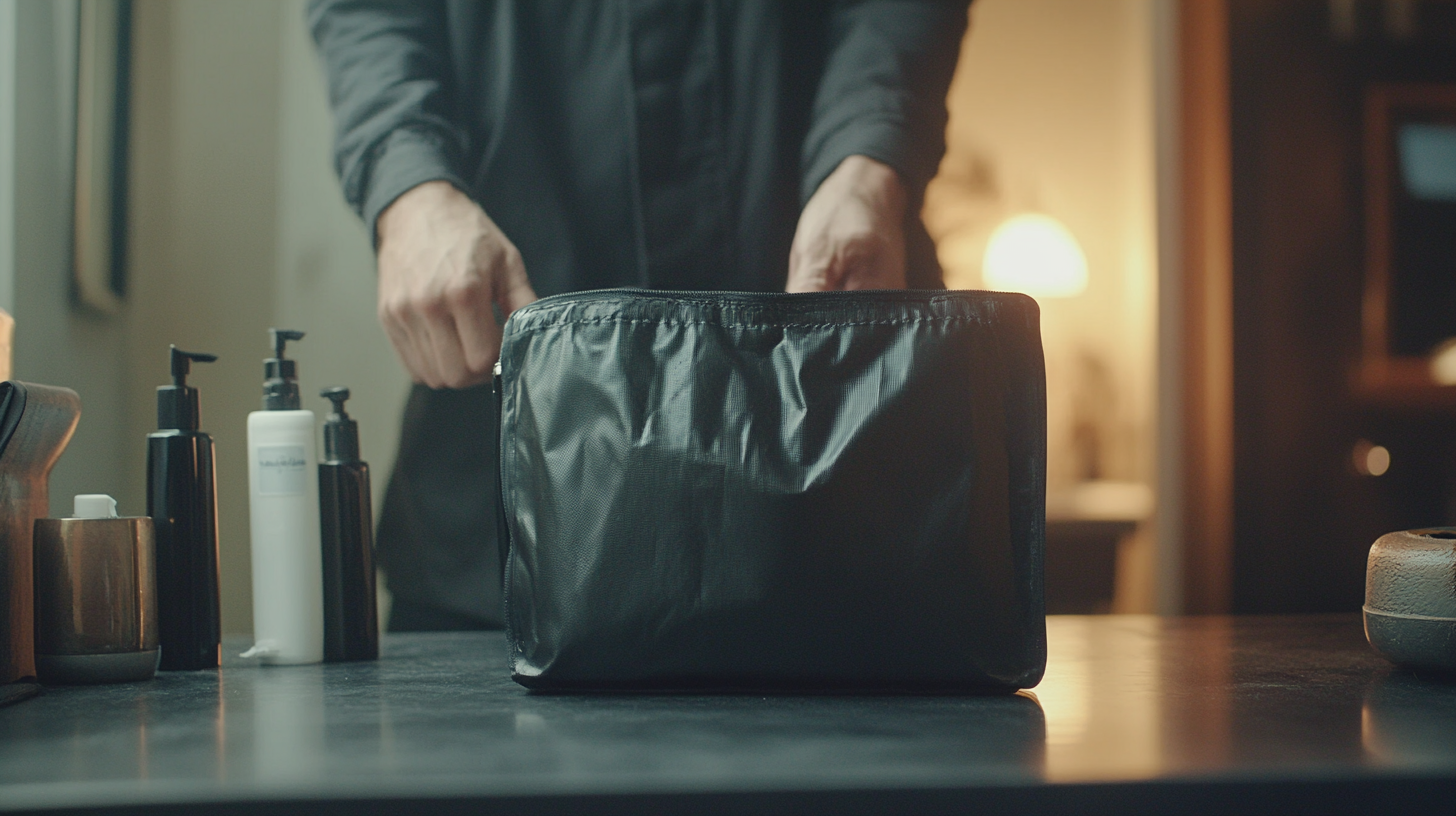Leave Your Message
Request a Quote
In today's industrial landscape, the importance of selecting the right filter bag cannot be overstated. As businesses strive for operational efficiency and compliance with environmental regulations, the filtration market is projected to reach USD 40.6 billion by 2025, growing at a CAGR of 6.2% according to a recent report by Grand View Research. Filter bags play a crucial role in this sector, serving as vital components in various applications ranging from wastewater treatment to food and beverage processing. The right choice of filter bag not only enhances filtration efficiency but also significantly reduces downtime and maintenance costs, making it an essential consideration for industries aiming to optimize their processes. Understanding the factors that influence the selection of filter bags can lead to better performance and sustainability, ultimately empowering organizations to master the art of filtration.

When selecting the perfect filter bag for your needs, understanding the various types available and their specific applications in industries such as pharmaceuticals is crucial. Pharmaceutical companies require exceptionally clean water for their processes, making the choice of filter type pivotal. According to recent reports, eight distinct filter types are essential for pharmaceuticals, each catering to different filtration requirements—from depth filters that remove particulates to membrane filters designed for sterilization purposes.
In addition to traditional filtration methods, the rise of disposable technologies has transformed upstream bioprocessing. Single-use systems (SUS) have become the standard for procedures like cell-culture seeding and media preparation. These systems not only enhance efficiency but also minimize contamination risk, as they eliminate the need for cleaning and sterilization. Notably, the adoption of these technologies has led to a substantial increase in operational flexibility, allowing companies to pivot quickly in response to market demands.
Another innovative approach gaining traction in the pharmaceutical sector is spray drying. This continuous process efficiently converts liquid feeds into powders, making it ideal for applications where particle size, morphology, and stability are critical. The effectiveness of this technique has been supported by studies indicating that it significantly enhances the solubility of active pharmaceutical ingredients, thus improving drug delivery systems. As the industry evolves, understanding these filtration options will be essential for optimizing production processes and ensuring product quality.

When selecting filter bags for specific industries, understanding the unique requirements of each sector is crucial. For instance, in the food and beverage industry, filter bags must adhere to stringent sanitary standards. According to a report by the Food Safety Authority, nearly 40% of foodborne illnesses can be traced back to improper filtration methods. Selecting filter bags made from FDA-approved materials ensures compliance and safety, preventing contamination during production processes.
In the pharmaceutical sector, the use of sterile filter bags is paramount. Data from the International Society for Pharmaceutical Engineering indicates that inappropriate filtration can lead to product recalls, which can cost companies millions of dollars. Hence, filter bags must not only be made from high-quality materials but also have the right micron rating to effectively capture contaminants without compromising the product's integrity. Furthermore, filtration systems must be regularly inspected and validated to maintain operational efficiency.
For industries like water treatment, the choice of filter bags impacts overall efficiency and environmental compliance. The Water Environment Federation reports that inefficient filtration can lead to increased operational costs and regulatory penalties. Therefore, selecting filter bags that are designed to handle specific contaminants, such as heavy metals or organic compounds, is vital for ensuring clean and compliant water discharge. By paying careful attention to these industry-specific factors, businesses can enhance operational efficiency and uphold product quality.
Filtration efficiency is critical when selecting the perfect filter bag for your specific needs. Understanding the ratings and standards that define filtration performance can significantly impact the effectiveness of your filtration system. According to the American Filtration and Separations Society (AFS), a majority of filter bags are rated based on their ability to capture particles of varying sizes, and this is often measured using the Minimum Efficiency Reporting Value (MERV). A higher MERV rating signifies superior filtration capabilities, allowing for the successful removal of finer particles, which can be essential for industries where air and fluid quality are paramount.
In addition to MERV ratings, it’s vital to consider the specific standards set by organizations such as the Institute of Environmental Sciences and Technology (IEST). They provide guidelines for various filter efficiency tests, which include dust loading and particle size distribution. Reports indicate that filtration systems meeting ISO 16890 standards are becoming a benchmark in the industry, as they provide a more comprehensive analysis of filter performance across a wider range of conditions. This knowledge empowers professionals across sectors, from pharmaceuticals to food processing, to choose filter bags that not only meet regulatory requirements but also optimize operational efficiency, ultimately leading to significant cost savings and enhanced product quality.
When selecting a filter bag, cost-effectiveness is a crucial factor that often dictates the decision-making process. Striking the right balance between quality and budget can be challenging, yet it is essential for optimizing your filtration systems' performance. Choosing a lower-cost filter bag may seem attractive at first, but if the quality is compromised, it can lead to frequent replacements, increased downtime, and ultimately, higher long-term costs. Therefore, investing in a moderately priced filter bag that offers superior durability and efficiency can prove to be more economical in the long run.
Quality and budget should not be at odds; rather, they should coexist harmoniously. A good approach is to research various brands and materials, considering both their filtration effectiveness and longevity. It is also advisable to assess the specific requirements of your filtration application. For instance, certain industries require bags that can withstand extreme temperatures or specific chemical compositions. By aligning your filter bag choice with your operational needs while keeping an eye on budget constraints, you can ensure that you are not only saving money but also maximizing the efficiency and reliability of your filtration processes.

When it comes to filter bags, maintenance is key to ensuring optimal performance and longevity. Regular checks are essential to identify any wear and tear that may affect filtration efficiency. Inspecting the filter bag for tears, clogs, or other damage should be done before and after each use. Keeping a maintenance log can be beneficial; it allows you to track the bag’s performance over time and preemptively replace it before it fails.
Additionally, proper cleaning methods can significantly extend the lifespan of your filter bag. Depending on the material, some bags can be reused after a thorough wash, while others may require specialized cleaning processes. Always refer to the manufacturer's guidelines for cleaning recommendations. Furthermore, storing the filter bag in a cool, dry place when not in use can prevent deterioration from environmental factors. By adopting these practices, you will not only maximize the effectiveness of your filter bags but also save on costs in the long run.

